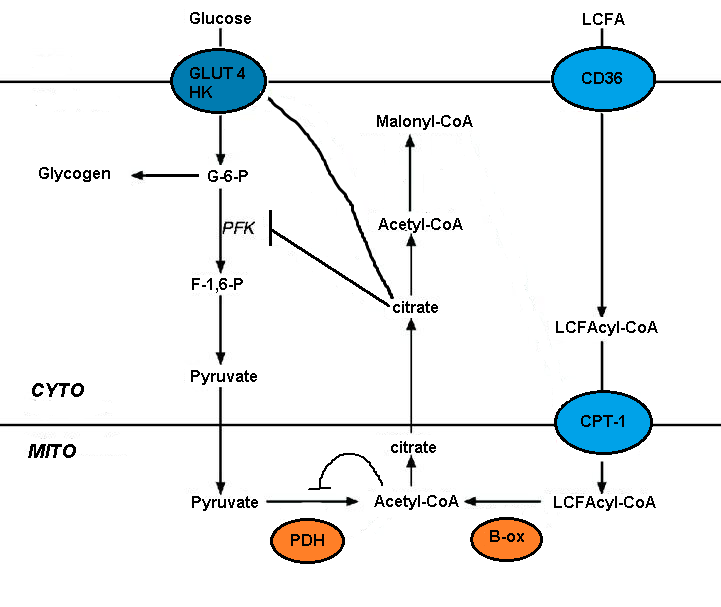Hey, guys! Thanks for reading! This time I'll be talking a bit about the Randle Hypothesis, which has ended up being the basis for a lot of the nutritional information out there. It's probably the reason why you think that fat is bad for you. Just a little warning: I'm still in the middle of reading the scientific articles that have to do with the Randle Cycle, so don't expect anything too detailed, and, as always, take what I say with a grain of salt.
 |
| Though maybe not this much. |
Basically, in 1963, Philip Randle decided to study how metabolism works at a cellular level. He took some muscle tissue (I think it was heart muscle) and dropped some fat onto it. The muscle cells stopped metabolizing glucose and used the fat for fuel instead, so Randle theorized that the presence of fat halts metabolization of glucose and leads to the production of fat. In shorter words, Randle said that eating fat makes you fat.
 |
| The silent killer? |
The thing is, this study was done in 1963. We now know many things that Randle had no idea even existed. Many of the enzymes involved in energy production,
 |
| This again. |
weren't discovered until the mid-90s. As in a full
thirty years later. And then, after we found out which chemicals existed in the first place, it took a while for us to find the exact pathways. This:
 |
| Notice the pathway from citrate to the inhibition of the glucose reaction chain. |
became this:
 |
| And now notice how the glucose chain is completely unchanged by the presence of fat. |
as new experiments were conducted.
Now, I grabbed both of these from the Randle Cycle's
Wikipedia page, which I hesitantly include a link to. The reason for this is, as you may remember from my last post, that I think this page is very poorly written. Basically, the author of the article jumped back and forth between the Randle cycle and the recently-dubbed (by Dr. Walker) "Anti-Randle cycle" with little to no warning. The article seems rather wishy-washy on the whole topic and unable to pin down what, exactly, the Randle cycle actually is.
 |
| Meh, no one's reading this anyway. |
The main point of this post is to basically say that many large organizations, including the American Diabetic Association, still use Randle's study to outline treatment plans for diabetics. Diet plans include high amounts of glucose and low amounts of fat, which is the exact opposite of what this
 |
| I'm going to keep using it. |
describes.
Next time: cheat days and more personal thoughts! See you then, and thanks for reading!







Hey Emily,
ReplyDeleteIt is cool that you are going to contribute to the rewriting of the wikipedia article. It makes me wonder how many more articles are just as unreliable...
More and more! If they sound biased and not just factual, they usually are
Delete